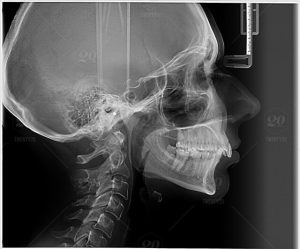CranioSacral Therapy to Treat Depression and other Mental Illnesses
 As the stigmas historically associated with mental illness slowly break down, more focus is placed on understanding how exactly these conditions affect so many of us. There is lots of good information available about what exactly happens to brain chemistry, what lifestyle and even dietary changes might help someone in their struggle with mental illness. One strategy that has been shown to help many people dealing with various mental illnesses is CranioSacral Therapy, and I’d like to explain how exactly this works. CranioSacral Therapy is gentle, mechanical manipulation of the individual bones that make up the skull, as well as the sacrum (i.e. your tailbone). This is an important piece: What if there is something STRUCTURALLY contributing to a mental illness? An Osteopath would agree: Structure serves function. This also applies to the brain. If this is the case, then all the lifestyle, diet, and medical interventions will be somewhat limited in their effectiveness.
As the stigmas historically associated with mental illness slowly break down, more focus is placed on understanding how exactly these conditions affect so many of us. There is lots of good information available about what exactly happens to brain chemistry, what lifestyle and even dietary changes might help someone in their struggle with mental illness. One strategy that has been shown to help many people dealing with various mental illnesses is CranioSacral Therapy, and I’d like to explain how exactly this works. CranioSacral Therapy is gentle, mechanical manipulation of the individual bones that make up the skull, as well as the sacrum (i.e. your tailbone). This is an important piece: What if there is something STRUCTURALLY contributing to a mental illness? An Osteopath would agree: Structure serves function. This also applies to the brain. If this is the case, then all the lifestyle, diet, and medical interventions will be somewhat limited in their effectiveness.
Dr. John Upledger, in his book, ‘Your Inner Physician and You’ (which is a very accessible discussion of what CranioSacral Therapy is and the story of how he developed this form of treatment), asserts that there are consistent cranial restrictions in patients suffering from depression. He explains that by treating the sacrum, along with the sphenoid and occiput bones (which form the cranial base), we see consistent and repeated improvements in a person’s mood disorder.
These techniques were studied and published in 2011 in the Journal of Alternative and Complimentary Medicine. 157 patients received Upledger CranioSacral Therapy (UCST) treatments for a variety of reasons, including for headaches and migraines, neck and back pain, and anxiety and depression. 74% of these patients reported a “valuable improvement in their presenting problem,” 67% reported an improvement in general well-being and secondary symptoms tied to pain or chronic stress, and 70% were able to decrease their medication use or discontinue use altogether.
I am not proposing that someone suffering from depression will be fixed and able to reduce or stop their medication after one treatment. I can say that I have seen a series of CranialSacral treatments have positive effects on people who suffered from severe depression in my own practice, even in very severe states of depression.
A consistent pattern hasn’t been identified yet for other mental illnesses, such as anxiety. In these cases, we use a ‘treat what we find’ approach, as the theory holds true that a fascial restriction affecting the cranial bones could very well be contributing to someone’s symptoms of a mental illness. To learn more about how CranioSacral Therapy works, I recommend the website www.upledger.com. Also, you can book a 15 minute complimentary consultation with me, and I would be happy to answer specific questions!